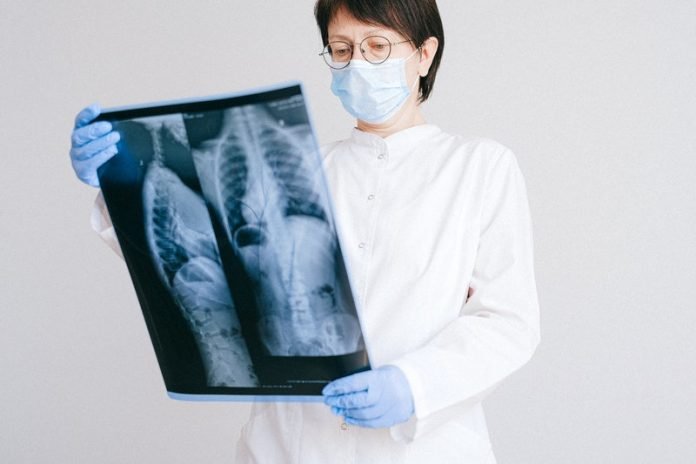
In a new study, researchers have helped drive monumental advances in the treatment of lung cancer – increasing survival rates in the nation’s leading cause of cancer deaths.
The treatments focus on immunotherapy to activate the body’s immune system to attack cancer, as well as drugs that target gene mutations fueling tumor growth.
Both approaches offer first-line therapies for patients with advanced disease.
The research was conducted by a team at the UCLA Jonsson Comprehensive Cancer Center.
Roughly 200,000 cases of lung cancer are diagnosed each year in the U.S., with up to 90% occurring in people who currently or previously smoked.
Each year, more people die of lung cancer than of colon, breast, and prostate cancers combined.
A report earlier this year by the American Cancer Society attributed the nation’s largest one-year drop in cancer mortality – a 2.2% decline from 2016 to 2017 – to a reduction in deaths from lung cancer.
Deaths have decreased because of lower smoking rates, advances in early detection, and improved treatments, the ACS said.
The most important thing that would reduce lung cancer deaths is to have people stop – and ideally never start – smoking.
Since 2013, low-dose CT screening of the lungs has been recommended for people with a history of heavy smoking.
Patients should be referred to the UCLA Lung Cancer Screening Program to determine eligibility.
The team says lung cancer is typically diagnosed at a more advanced stage than many other cancers when the disease already has spread.
While surgery for early-stage lung cancer remains the mainstay of treatment, targeted molecular therapy and immunotherapy are used for patients with inoperable cancer or metastatic disease.
Initially developed more than a decade ago, targeted drugs can block or turn off the signals that make cancer cells grow. They are designed to target cancer cells without affecting normal cells.
In the study, the team developed a two-drug therapy of ramucirumab and erlotinib for EGFR (epidermal growth factor receptor) mutant non-small cell lung cancer. T
The therapy, approved by the FDA in May, is the first targeted combination for roughly 10% of people with lung cancer with this mutation in the U.S.
The therapy combination works by blocking blood vessel formation along with the EGFR protein to keep cancer cells from growing.
Among people with lung cancer, Asian Americans and women are more likely to have the EGFR mutation.
Also in May, the FDA approved capmatinib, the first therapy for advanced lung cancer to target abnormalities in the MET gene.
The drug can be used as front-line therapy for cancers with abnormalities in the MET gene, which comprise up to about 4% of non-small cell lung carcinoma.
There are several FDA-approved immunotherapies for lung cancer, which work by mobilizing the body’s own defenses to mount a stronger attack.
The majority of patients with the advanced disease receive immunotherapy as part of their treatment.
The team says they expect researchers will continue refining targeted therapies and immunotherapies, with more treatments gaining FDA approval.
One researcher of the study is Edward Garon, MD, the director of the Signal Transduction and Therapeutics Program.
Copyright © 2020 Knowridge Science Report. All rights reserved.



